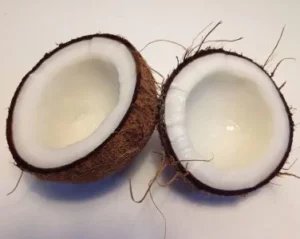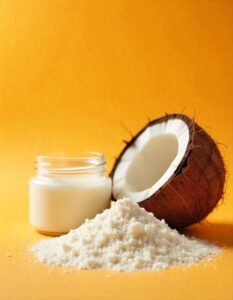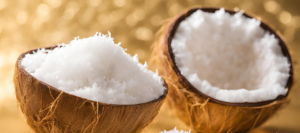As businesses and consumers become more eco-conscious, the environmental impact of agricultural practices has come under greater scrutiny. Industries are increasingly focused on sustainability, with companies looking for ways to reduce their carbon footprint and align their operations with environmentally friendly practices. Coconut farming, in particular, is emerging as a key player in the global shift towards sustainable agriculture.
At Grofarm uG, we are proud to import mature coconuts and coconut byproducts to Europe, offering an array of coconut-based goods that not only meet the growing demand for natural products but also align with environmental stewardship. In this blog, we will explore the environmental impact of coconut farming and explain how this agricultural practice benefits ecosystems, communities, and the planet.

Understanding the Environmental Benefits of Coconut Farming
Coconut farming, particularly when done sustainably, offers several environmental advantages over many other forms of agriculture. The cultivation of coconuts is generally considered low-impact and eco-friendly, making it a more sustainable alternative to some resource-intensive crops such as palm oil or soy. Here’s a closer look at some of the ways coconut farming positively impacts the environment:
1. Minimal Water Use
One of the standout benefits of coconut farming is its low water demand. Coconut trees are naturally adapted to tropical environments where water can be scarce during dry seasons. Unlike water-intensive crops such as almonds or rice, coconut palms require significantly less irrigation. This makes them an ideal crop for regions prone to drought or limited water availability, particularly in Southeast Asia, Africa, and the Pacific Islands where coconuts are predominantly grown.
2. Carbon Sequestration
Coconut trees play a critical role in mitigating climate change by sequestering carbon dioxide from the atmosphere. Each coconut tree absorbs CO2 throughout its lifespan, helping to reduce the overall concentration of greenhouse gases in the air. This makes coconut farming a valuable part of the effort to combat global warming. In addition to sequestering carbon, coconut trees continue to store carbon in their trunks and leaves for many years, acting as long-term carbon sinks.
3. Soil Health and Erosion Control
Coconut trees have a dense root system that helps stabilize soil and prevent erosion, especially in coastal areas where soil degradation can be a major issue. These roots hold the soil together, which minimizes runoff and helps maintain fertile topsoil. As a result, coconut farming can actually help protect and improve soil health over time, making it a valuable agricultural practice in regions where erosion is a threat.
Moreover, coconut farming often includes the practice of intercropping, where coconut palms are grown alongside other plants like cocoa, bananas, or legumes. This method not only enhances soil fertility but also promotes biodiversity by creating a more varied ecosystem.
4. Biodiversity Preservation
Unlike monoculture plantations, where a single crop is grown over a large area, coconut farms are often more biodiverse. The tall coconut palms can coexist with other crops, allowing for more diverse agricultural ecosystems. This intercropping method supports local wildlife, promotes pollination, and helps create habitats for various species. By cultivating coconuts in a way that preserves biodiversity, coconut farming contributes to healthier, more resilient ecosystems.
5. No Deforestation Pressure
Coconut farming generally does not contribute to deforestation, which is a critical issue linked to the expansion of crops like palm oil, soy, and beef. Coconuts are grown on land that is often already cleared, or in coastal and rural areas where the natural habitat is not being disturbed. This makes coconut farming an environmentally preferable option when compared to agricultural practices that require the destruction of rainforests and other natural habitats.
A Zero-Waste Crop: Utilizing Every Part of the Coconut
Coconuts are often referred to as the “tree of life” because almost every part of the coconut palm has some valuable use. This reduces waste and increases the sustainability of coconut farming. Here’s how the various parts of the coconut are utilized:
1. Coconut Water and Milk
Coconut water and milk are popular natural beverages with minimal environmental impact. Coconut water, in particular, requires almost no processing. It is harvested directly from the coconut and packaged, which reduces energy use and waste. Coconut milk, made from the flesh of mature coconuts, is similarly sustainable and provides a plant-based alternative to dairy products.
2. Coconut Oil
Coconut oil is another byproduct of mature coconuts and is widely used in cooking, cosmetics, and personal care products. The production of coconut oil requires fewer chemical processes and less energy compared to other vegetable oils, such as palm or soybean oil. Furthermore, virgin coconut oil production utilizes a cold-pressing method, which is both energy-efficient and environmentally friendly.
3. Coconut Husk and Shell
Even the byproducts of coconut farming, such as the husk and shell, are put to good use. The fibrous husk can be processed into coir, a natural fiber used to make ropes, doormats, brushes, and biodegradable pots. Coconut shells can be used to make activated charcoal, a natural material commonly used for water filtration, air purification, and even in cosmetics.
4. Coconut Leaves and Trunks
Coconut palm leaves and trunks are often used in traditional building materials, furniture, and crafts. This not only provides an additional source of income for farmers but also ensures that every part of the coconut tree is utilized, leaving little to waste. The coconut tree, by nature, promotes a circular economy.
Challenges and Opportunities for Sustainable Coconut Farming
While coconut farming offers numerous environmental benefits, there are still challenges that need to be addressed to ensure the long-term sustainability of the industry. Here are a few of the current challenges and opportunities for improvement:
1. Sustainable Farming Practices
Although many coconut farms operate sustainably, there is still room for improvement when it comes to scaling up eco-friendly practices. Organic farming, agroforestry, and regenerative agriculture are methods that can be adopted more widely to improve soil health, reduce pesticide use, and promote biodiversity. By encouraging sustainable farming practices, the coconut industry can continue to grow without compromising environmental integrity.
2. Fair Trade and Ethical Sourcing
Coconut farming supports the livelihoods of millions of smallholder farmers in tropical regions. However, ensuring that these farmers are fairly compensated and work under ethical conditions is essential for the industry’s sustainability. Fair-trade certifications and initiatives that support smallholder farmers help ensure that coconut farming is not only environmentally friendly but also socially responsible.
3. Reducing Processing Waste
While coconut farming is relatively low-waste, there is still an opportunity to improve the efficiency of coconut product processing. Investing in better technologies and practices that minimize energy use and waste during the processing of coconut oil, water, milk, and other products can further enhance the sustainability of the coconut supply chain.
10 Benefits of Coconut Farming for the Environment
- Low Water Consumption: Coconuts require less water than many other crops, helping conserve valuable resources.
- Carbon Sequestration: Coconut trees absorb and store CO2, contributing to the fight against climate change.
- Preventing Soil Erosion: The extensive root system of coconut trees helps prevent soil degradation.
- Intercropping Benefits: Coconut farming supports biodiversity by allowing other crops to grow alongside coconut trees.
- Zero Deforestation: Coconut farming does not contribute to deforestation, unlike palm oil or soybean farming.
- Biodiversity Conservation: Coconut plantations are often home to diverse plant and animal species.
- Utilization of Byproducts: Every part of the coconut is used, from the water to the shell, minimizing waste.
- Sustainable Production: Coconut products require less energy to process, making them environmentally friendly.
- Natural Alternatives: Coconut-based products provide a natural and sustainable alternative to synthetic goods.
- Supporting Smallholder Farmers: Coconut farming offers sustainable livelihoods, supporting local economies and communities.
Conclusion: The Future of Coconut Farming
Coconut farming, when done sustainably, offers a wealth of environmental benefits that make it a smart choice for businesses and consumers alike. At Grofarm uG, we are committed to providing high-quality coconut products that promote sustainable agriculture and environmentally conscious practices. By incorporating coconut products into your business, not only are you choosing a resource-efficient crop, but you are also contributing to a greener, healthier planet.
For wholesalers, importers, and supermarkets looking to make a positive environmental impact, coconut products represent a practical and sustainable solution. Explore our range of coconut products today and be part of the movement toward more sustainable farming and production practices.



